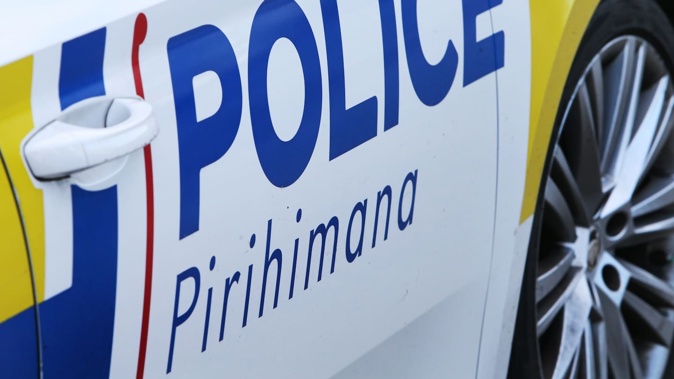
A ministerial advisory group has warned the Family and Sexual Violence Prevention Minister of “declining Police responsiveness”, and serious risk of injury or death – which Labour says should raise alarm bells for ministers responsible.
“Some NGOs are now providing tactical defence training to staff, and some providers are considering issuing stab vests - highlighting the serious risk of kaimahi being injured or killed.”
That’s according to a memorandum from Te Pūkotahitanga, a tangata whenua advisory group that independently advises the Minister for the Prevention of Family and Sexual Violence Karen Chhour.
The March document summarised a recent hui between Police and family and sexual violence workers, and also said Pūkotahitanga had observed the decline in responsiveness “coincides with increased Police focus on enforcing new gang laws”.
However, both Police and Minister Mark Mitchell said officers are not transitioning away from attending family violence events that require a police response - and said Police are in fact coding 7.7 percent more family violence events as priority one emergencies.
Chhour says the Te Aorerekura Action Plan was also launched last year, to help government agencies better collaborate on the issue – enabled by a new technological platform to replace the current system.
But Labour says there is “real alarm” among community providers, and the concerns raised in the document should alarm Chhour as Minister-in-charge.
Te Pūkotahitanga provides advice to the Minister, and Te Puna Aonui – a group designed to bring together government agencies on the elimination of family violence, including Education, Health, Police, Justice, Corrections and Oranga Tamariki.
In March it provided Minister Chhour with a summary of a recent hui between Matatuhi, a collective of Family and Sexual Violence Maori kaimahi (workers), and Police, to discuss their Risk Harm Assessment Framework.
It said Chhour had requested the summary to support her engagements with Police Minister Mark Mitchell.
It noted concerns had been raised in December last year “about declining Police responsiveness to family and sexual violence incidents, including high-risk situations.”
The document lists examples of “delays and misjudgements in Police responsiveness”, including an assault in one provider’s reception area to which Police took 50 minutes to respond, and incidents of child to parent violence not being prioritised.
“It’s increasingly falling to community providers to ensure whānau are made safe and kept safe in family violence situations due to slow or no police response,” it states.
“This poses a serious risk to kaimahi health and safety.”
Labour’s police spokeswoman Ginny Andersen says she is also hearing from NGOs who have reported the same issue.
“They’re reaching out for help for a situation, either for one of their clients, or a situation in one of their facilities, and they cannot get a police officer once it’s been established it’s a family violence issue.
“What we are hearing loud and clear is that people aren’t coming.”
Labour’s family and sexual violence spokeswoman Helen White says the concerns are serious enough that the
Minister responsible should have intervened.
“Her job is to be a zealous advocate for the victims in this country,” she said.
“She’s got to get in there and advocate strongly, she’s got to go to the Police Minister and say that’s just not good enough.”
Police Minister Mark Mitchell says himself and Minister Chhour are “very aligned”.
He says Police are triaging differently in relation to social issues that are more appropriate for a non-Police response, but Police will continue to respond when there is a serious offence, violence, or an immediate risk to property, life or safety.
Mitchell encouraged anyone with specific concerns to raise these directly with police.
Police Assistant Commissioner Mike Johnson says the Risk Harm Attendance pilot began in September, and was expanded across all emergency communications and dispatch workers in December.
He says requests for police attendance are assessed against criteria of severity, circumstance, attributes and need.
Johnson says if it’s deemed a physical response is not required, the call is transferred to the 105 online or call taker, after which it is sent to the local Family Harm Team for assessment and appropriate action.
“Police’s median response time for family harm events decreased by over three minutes in 2024 compared to 2023.”
Johnson said initial feedback suggests the framework’s producing positive outcomes, and a decision about its future will be made after a full evaluation next month.
Chhour said as the Minister responsible for Te Puna Aonui, she is pleased with their work to break down siloes across the public service.
She says the Te Aorerekura Action plan, launched in December, is focused on keeping people safe through multi-agency responses, holding people to account, improving workforce capability and investing in workforces to equip people to assess risk, and share information.
“This work will be enabled by a new technological platform to replace the current family safety system, so that agencies have appropriate information for risk management and safety planning.”
Sophie Trigger is Newstalk ZB’s senior political reporter. She joined the New Zealand Herald in 2020, before moving to Newstalk ZB and the press gallery in 2022.
Take your Radio, Podcasts and Music with you









